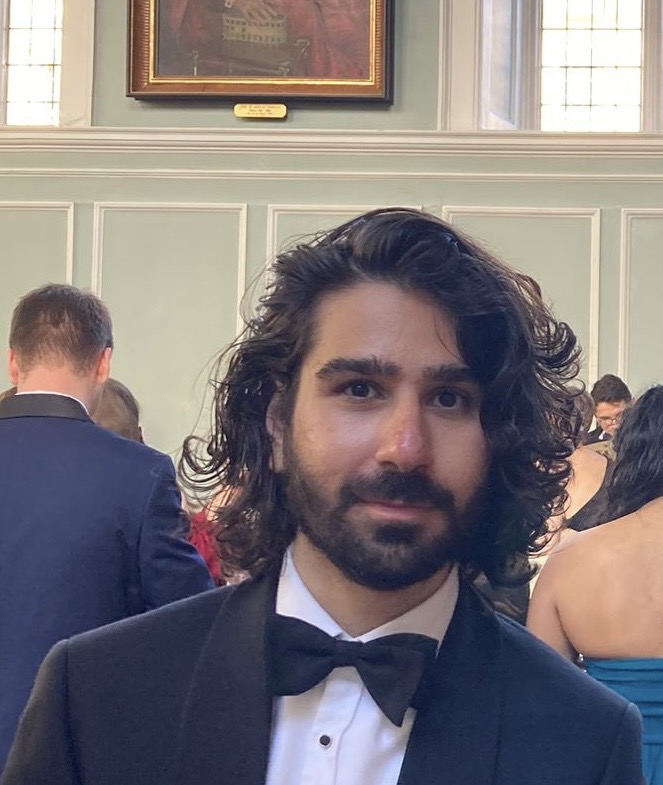Hey, I’m Suren, a current PhD student at the Faculty of Music, where I also did my MPhil in Music (2022-2023). I’ve created a small ‘week in the life’ sample for those of you considering the MPhil at Cambridge. This 'week in the life' is based around Michaelmas term (October-December), which is when you would begin with your course.
The MPhil has quite a heavy workload, as well as reading content, that is quite a step up from undergraduate level – it’s quite rewarding and being at Cambridge is great (both academically and in terms of the social life and career opportunities available) but do keep in mind that everyone in my cohort did find it very challenging at times. Whilst I’ve only just begun my PhD, looking back, the MPhil was quite a big commitment.
On Mondays in Michaelmas during the MPhil I would typically spend quite a large chunk of my day in the library or at home reading and making notes from journal articles as part of the “Musicology and its Debates” module. We would be assigned around 200-300 pages a week on average, and would come to the seminars being ready to discuss readings. I would also attend the “Music Skills” lecture given to us every Monday. In the evenings I would often also go to the gym or meet up with friends casually at the college bar.
On Tuesdays we had our “Musicology and its Debates seminar” which would last two hours; before coming to the seminar I’d usually spend time reading or preparing the discussion points I’d want to bring up. We would then be assigned more reading for another seminar on Thursday, and I would usually go to my college library and begin with those. On some Tuesday evenings I would attend a formal dinner at my college with my friends as well as classmates from the MPhil program.
A typical Wednesday might involve me using the faculty's studio to work on my beats, before getting on with my course reading in the faculty library. Every two weeks on a Wednesday I’d also have an hour meeting with my supervisor to discuss where I was at with my thesis planning and research. I might attend the gym in the early afternoon, and then at around 4:45pm I would gather with other postgraduates, post-docs, and faculty staff for tea and biscuits before “Colloquia” – a musicology research lecture given by a member of the faculty or a researcher from another university. Afterwards wine and refreshments are served, and some postgraduates and staff go for dinner with the researcher; I went to these optional dinners a couple of times.
On Thursdays I would spend an hour or two planning my thesis based on the feedback from my supervision,* and then later attend the second “Musicology and its Debates” seminar of the week. I would probably go to the library afterwards and continue reading and making notes; I might then finish the day by attending a debate at the Cambridge Union.
On Fridays I would take it a little bit easier, but still get all my work done in the library or at home, which would take a good amount of time. I would also grind away at my upcoming essay and abstracts assignment.** Depending on the day and what’s on, I could end the week by attending a social event at my college or attend a Hip Hop After Dark event in the cellars of Clare College.
I would often use the weekend for any catching up on reading, as well as doing some work on my musicology essay and abstracts due at the end of Michaelmas/start of Lent term (Mid-January).
Whilst getting adapted to the MPhil workload was quite the challenge in these first few months, as the year progressed I thoroughly enjoyed the experience. Looking back, the MPhil was certainly key to helping me figure out where I wanted to take my research at the doctoral level.
*Students studying for the MPhil in Music Studies submit either a 12,500-15,000 word dissertation or a 50-60 minute recital with an accompanying 7,500 word essay by the end of their course.
**Students on this MPhil course submit a portfolio of abstracts (not more than 1,500 words) and three essays of not more than 3,500 words each; one of the essays is based on the 'Musicology and its Debates' course; the other two essays are based on the two optional courses taken in Lent Term (January-March).
For full course details go to: https://www.mus.cam.ac.uk/applicants/graduate/mphil




